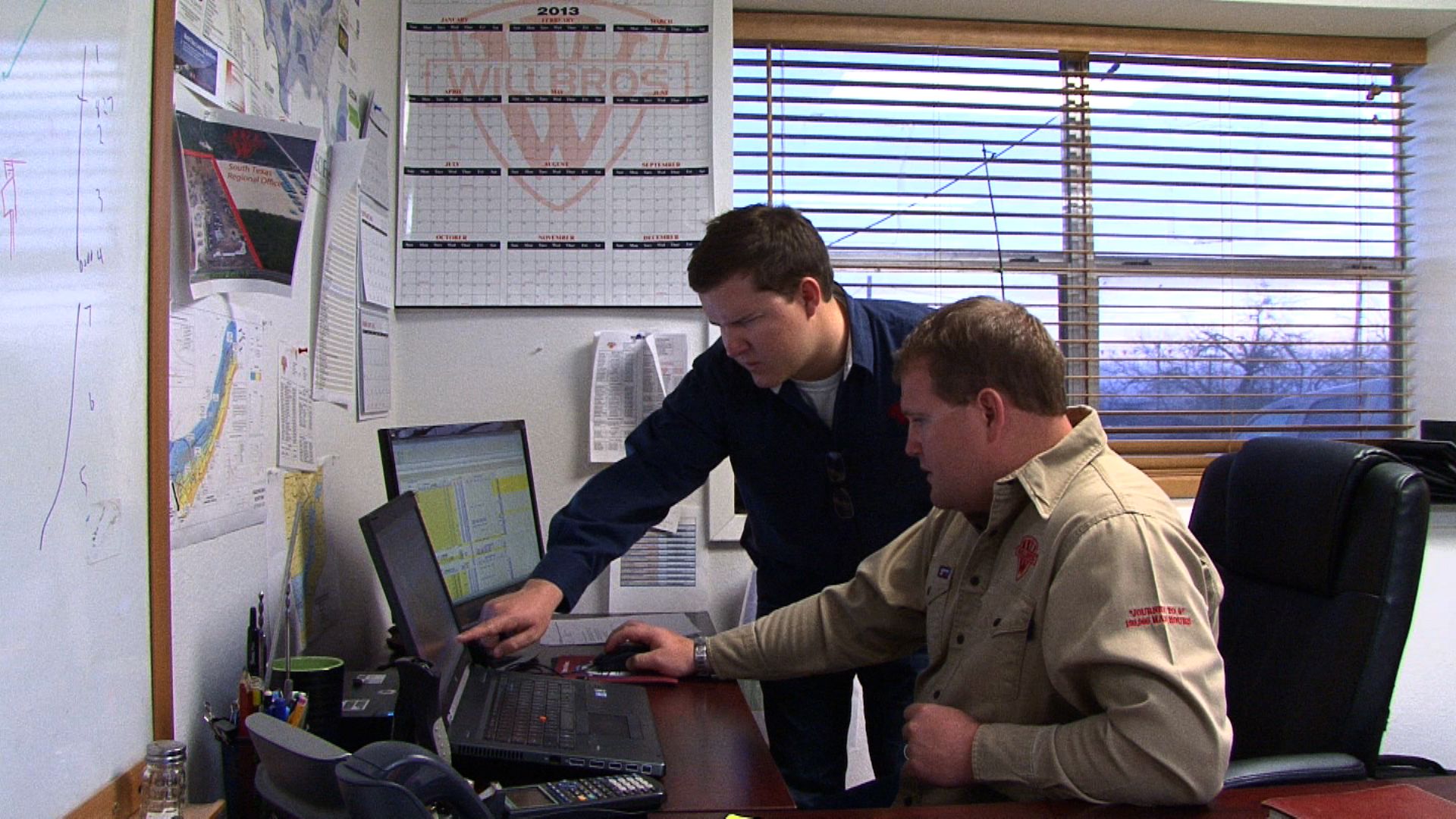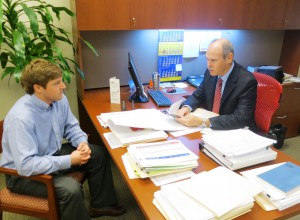August 2013, Vol. 240 No. 8
Features
Willbros Recruiting Efforts Bring in Top Talent

As baby boomers begin to make their exodus into retirement, many companies have found themselves seeking top talent in a competitive market. But, what kind of engineers are in demand and what are companies doing to win and retain top talent in this environment?
Company recruiters are thinking creatively when it comes to attracting elite job candidates. In order to stay competitive, many companies have developed special programs to attract top candidates, particularly recent college graduates. To create this attraction, Willbros Group, Inc., has created an initiative called the Graduate Development & Rotation Program.
Like a doctor who goes through a medical rotation, engineers in the Willbros program go through a rotation of the various business segments. During the 18-to-24 months that they are in the program, the engineers get functional knowledge and an understanding of the company’s varying businesses by rotating through the company’s business units.
During this time, the participants complete at least three rotations in each of the company’s primary business units with rotations lasting approximately six to nine months. During each rotation, the participant will work at both the construction sites and the home office supporting project controls and field engineering duties.
Possible program assignments include:
• Upstream Oil & Gas (Denver, Eunice, Fort Worth, George West, Gillette, Houston, Pittsburgh and Tulsa)
• Downstream Oil and Gas (Houston, Tulsa and Baton Rouge)
• Utility Transmission & Distribution (Dallas-Fort Worth and Hauppauge, NY)
According to the latest Engineers Workforce Commission (EWC) report, Engineering & Technology Degrees, a record number of B.S., masters and doctorate degrees in engineering were awarded last year. Bachelor degrees were awarded to 87,761 students in engineering, surpassing the previous year’s record by more than 3,000 degrees. Based on enrollment trends, EWC believes the awarding of engineering degrees at all levels will continue to increase in the next few years.
Recruiting and retaining top graduates is crucial in the energy industry where employees are retiring at a more rapid rate. Willbros’ goal is to equip employees with knowledge in: engineering, procurement, construction maintenance, project management as it relates to the oil and gas and utility transmission and distribution markets.
Kyle Alty serves as Operations Manager – Southwest Region for Willbros Construction and acts as a mentor for the program.
“I think it’s important in our industry to help these young professionals, and the more of them that we can bring in, the better off we’re going to be,” said Alty. “They’re going to be involved in the day-to-day logistics of tracking and executing large projects. So, the tools and skills they need to manage are what they’re going to learn. It’s a way to very quickly get involved and be helpful to the team, but at the same time, they’re learning the skills needed to become a successful professional.”

To qualify for the program, candidates must have a Bachelor’s or Master’s degree in Civil, Structural or Mechanical Engineering. A degree in Construction Management is also accepted. Alex Mitchell graduated from Louisiana State University with a Bachelor of Science degree in construction management in 2012 and is employed with Willbros Construction and is mentored by Alty through the program.
“I found out about the opportunity at an LSU Construction Career Fair; Willbros had a table set up and I was interviewed on the spot,” said Mitchell. “I don’t think that a lot of people in other industries with my age and my experience level would get the same opportunities I’ve gotten through this program. I started from the bottom doing take-offs on jobs that we were doing. He (Alty) helped me build up my skills by letting me put bids together and crunch the numbers to come up with cost and other project related information. Now, I basically have my hand in just about everything this office does as far as invoicing, cost analysis, going out in the field and keeping up with the guys and maintaining our relationships, our client development and everything else that goes along with it.”
Ernest Gibson graduated from the University of Texas in 2012 with a degree in Mechanical Engineering. He has been in the Willbros program since January and is working in the Tulsa engineering office. “I began with very little knowledge of the industry. The first thing I had to learn was how to read and understand different drawings. From there I’ve started to learn more about how a project progresses,” said Gibson. “I’ve had the opportunity to carry out a variety of tasks including running pipe stress calculations, compiling material lists, and interfacing with clients and vendors just to name a few.”
To staff this program, Willbros has recruited at college career fairs including: Texas A&M University-College Station, LSU, Penn State and Zane State College. Students at the Colorado School of Mines also got the chance to speak to engineers from the Willbros Denver office.
“We prefer industry specific career fairs since we can really focus on the candidates we are most interested in. In the fall of 2013 we are going to focus in the areas where we have a significant work presence such as Colorado, North and South Dakota, Ohio, Pennsylvania, Texas and Louisiana,” said Tommie Divine-Alford, Willbros Corporate Director of Recruiting.
Divine-Alford added, “Most of these states have significant shale plays being developed. The average size of a Willbros project allows new graduates to get challenged with a wide variety of tasks early in their career rather than being restricted to a single task or activity.”
The Texas A&M University Student Engineers’ Council has seen an increase in the number of companies attending its career fairs. Despite expanding the job fair by 118 booths this fall, there is still a long wait list. “Our wait list is currently at 70 companies for Tuesday, September 10th and we reached capacity on April 3rd. Wednesday, September 11 (the second day of the fair) is currently at 90 percent capacity,” said Career Fair Co-Chair of the Texas A&M Student Engineers’ Council, Kate Fiorenzi. “This will be the largest engineering career fair at Texas A&M and one of the largest in the nation. We expect to see 400 companies in the fall.”
The popularity and importance of engineering career fairs is validation of industry grumblings geared toward replacing retirees and the training process is essential to a seamless transition. Young engineers can expect to be offered competitive benefits and salaries. According to Salary.com the starting salaries for civil, structural and mechanical engineers range from $55,500 to $61,500.
“There are a lot of engineers that go to school, and have brilliant intellect. When they go to a design office they don’t necessarily have the constructability knowledge, the actual ‘I’ve been there, I’ve done that, this is how this widget fits together, this is how this pipe lays in the ground,’ they need help with that so they can quickly have a successful career,” said Alty. “Seeing and being a part of the construction before you start the designing or project management process is extremely important to the future success of your career.”
Author:

David Koons serves as Senior Vice President of Projects for Willbros. He joined Willbros one year ago after 30 years with KBR. He graduated from Texas A&M University-College Station in 1974 with a Bachelor’s in Environmental Design and in 1977 with and a Master’s in Architecture – Construction Management.





Comments